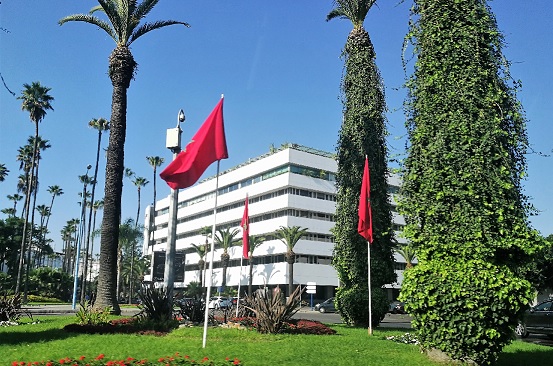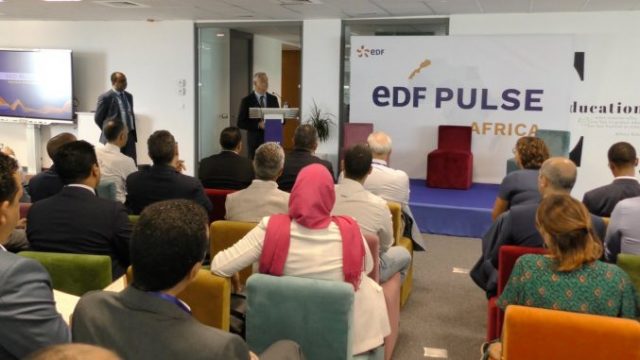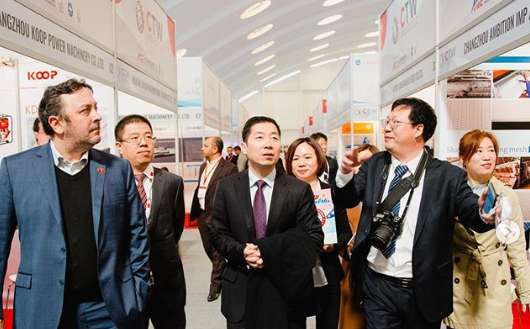In an ever-changing digital world, Morocco is racing against the clock to achieve its transition, but will it succeed in becoming a leader in this newborn sector?By Yahia Hatim -Jan 26, 2020Morocco, like many developing countries, is currently in a t...
In an ever-changing digital world, Morocco is racing against the clock to achieve its transition, but will it succeed in becoming a leader in this newborn sector?
By Yahia Hatim -
Jan 26, 2020
Morocco, like many developing countries, is currently in a transitional phase between the paper era and the digital age. Organizations are transitioning from relying on physical documents for their everyday functioning to using digital technology to solve their problems.
As Morocco’s digital transformation goes ahead at full speed, Morocco World News sat down with one of the transformation’s leading actors to discuss the future of digitalization and how it will affect Morocco’s economy.
Yasmina Benchekroun, Managing Director at the Moroccan branch of Abergower, a British multinational specialized in digitization, shares her experience in this burgeoning economic field and her forecasts for the future.
Is Digitization the Future for Morocco Business Sector
Yasmina Benchekroun, Managing Director at Abergower Maroc.
Digitization in Morocco
Digitization is the process of converting information contained on paper documents into digital content. It is a critical part of any digital transformation process, according to Benchekroun.
The process decides whether the digital transformation of an organization is successful or not, as it has to capture the data contained in every document and index it in a way that facilitates its retrieval and use.
In Morocco, companies started digitizing their data over ten years ago. “However, it’s only over the last two to three years that companies and organizations became acutely aware of the importance of moving their business processes into a digital format,” explains Benchekroun.
Moroccan financial institutions were the first to become aware of digital transformation’s role in cutting costs, improving customer experience, and competing with global companies.
In recent years, especially after Morocco’s Ministry of Industry, Investment, Trade, and Digital Economy created the Agency for Digital Development (ADD) in 2017, the digitization sector has boomed. Governmental institutions and several major companies launched a digital transformation process to meet their customers’ needs.
However, the digitization trend is no longer exclusive to large companies. Today, Moroccan small and medium companies (SMEs) are also trying to transform their business processes digitally.
“There has been a trickle-down effect from large multinationals to small and medium companies, who see very clearly the enormous advantages of digitization,” notes Benchekroun.
Companies specialized in digitization, such as Abergower, accompany organizations through their digital transformation.
They “offer consultancy services to define the main areas where digitization would give the most significant benefits,” explains Abergower’s director.
The main benefits of digitization include a reduction of the required physical space to store files, quick access to information, and the improvement of customer service.
The role of youth and women in digitization
Nowadays, there is a noticeable increase in the number of tech startups, launched by young Moroccans. Benchekroun explains the digital sector’s attractiveness to youth is due to the nature of modern life.
“Young people embrace technology in every aspect of modern life; they are excited by what it does and the barriers that it breaks. They see the opportunity to develop new things and the financial benefits they can provide for their country and for themselves as individuals in an ever-growing world,” she says.
“That is the reason why we have more young people in our country who are willing to take the adventurous path of entrepreneurship, especially in the tech sector. So, I think our young people starting their companies should be brave and remain active until they get where they want,” she continues.
Women are also starting to take leading roles in the digital sector, a field that has always been male-dominated.
“It is widely known that men have dominated every aspect of business life, almost since the industrial revolution. With many factors such as social, economic, and political influences, men have been at the forefront of running businesses for a long time,” laments Benchekroun.
“Thankfully, that is now changing. Morocco is a great place to be an entrepreneurial woman involved in technology. It can drive real change,” she says in a tone switch.
Technology has played a significant role in reducing the gender gap in Morocco’s business sector. Women are currently contributing considerably to the Moroccan economy.
“We should embrace technology as being a real catalyst, allowing women to empower themselves in today’s dynamic business environment,” she argues.
The future of Morocco’s digital sector
Morocco has great potential to compete with leading economies in the digital sector, according to the Moroccan businesswoman.
“Now is a golden time to leapfrog many of the outdated business practices that have been around for decades. The Moroccan government is committed to technological development, and the young and vibrant workforce is tech-savvy. It is an ideal time to seize the opportunity,” says Benchekroun, encouraging Moroccan organizations to take part in Morocco’s digital transformation.
Many old and well-established economies in the world have outdated technical infrastructure that would need considerable investments to transform. Morocco, however, is “free from such shackles” and can overtake global economies in critical areas.
The digital transformation would also allow Moroccan companies to be more competitive, to react quickly to opportunities, and to be more responsive to the Moroccan and the global markets’ needs and requirements.
“All successful economies need to trade in the digital world. It is said that digital data is the new oil of the 21st century,” says Benchekroun, emphasizing the importance of the digital sector in today’s world.
Morocco should continue its investments in the sector to become a leading global actor. Currently, the industries that are most concerned by digitization in Morocco are manufacturing, imports and exports, insurance, financial and legal services, accounting, and government agencies.
The digital transformation of these sectors has the potential to make the Moroccan economy reach new heights.
While the Moroccan government is leading the digital transformation, it is the responsibility of all Moroccans, including companies and organizations of all sizes, entrepreneurs, and employees, to contribute to the process.
For the transformation to be successful, there should be a shift in mentality as well. One cannot build a modern company and keep traditional work patterns. That is why all the actors should get out of their comfort zone and embrace new technologies, even if they are reluctant to change.
Finally, “accelerating digitization in Morocco requires spreading the word and communicating around us. We have to learn more about digitization and get to know what are the best technologies for us to be the most productive,” concludes Benchekroun. After all, knowledge is power.
Original Source: https://www.moroccoworldnews.com/2020/01/292042/digitization-future-morocco-business-sector/




